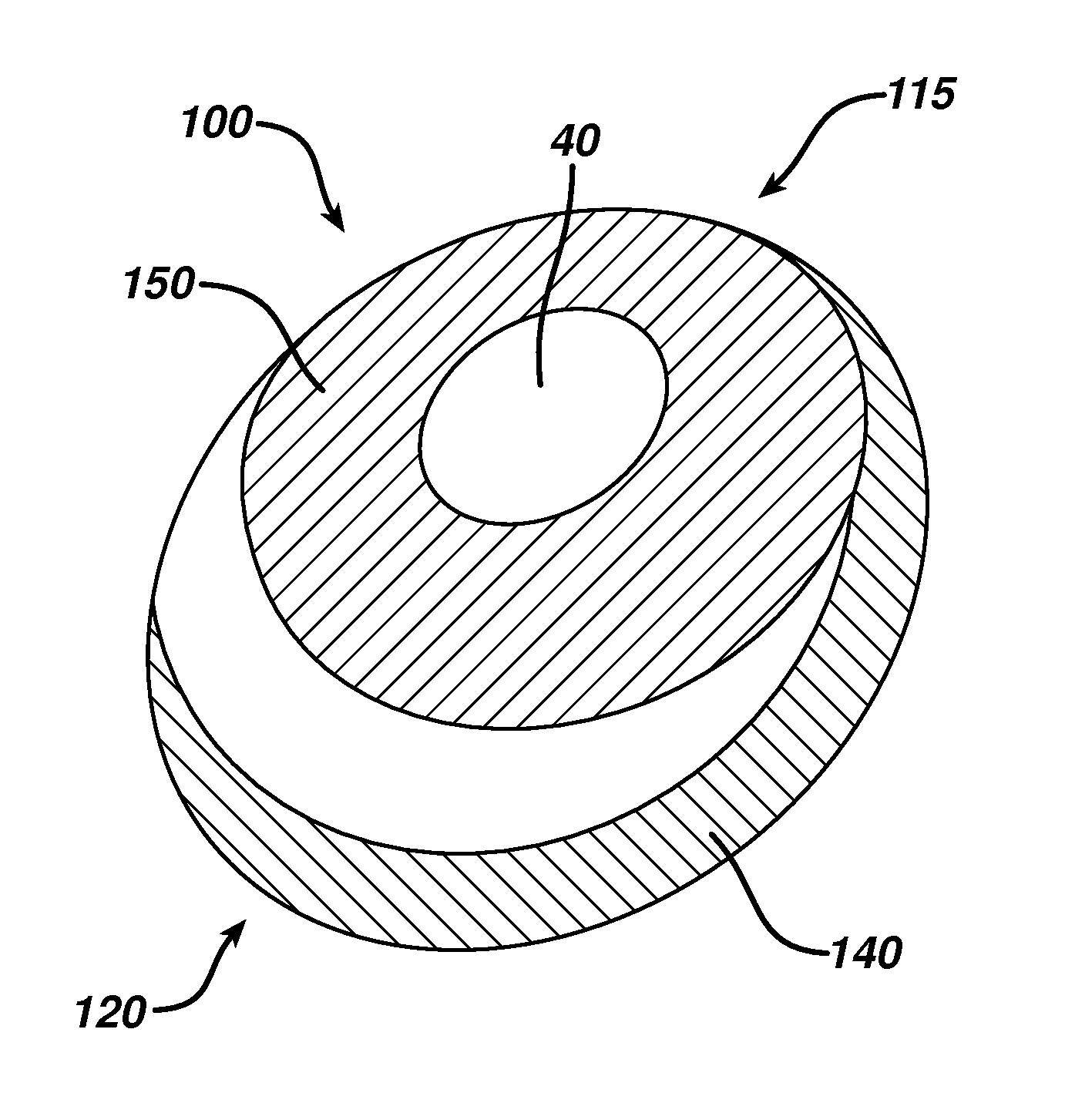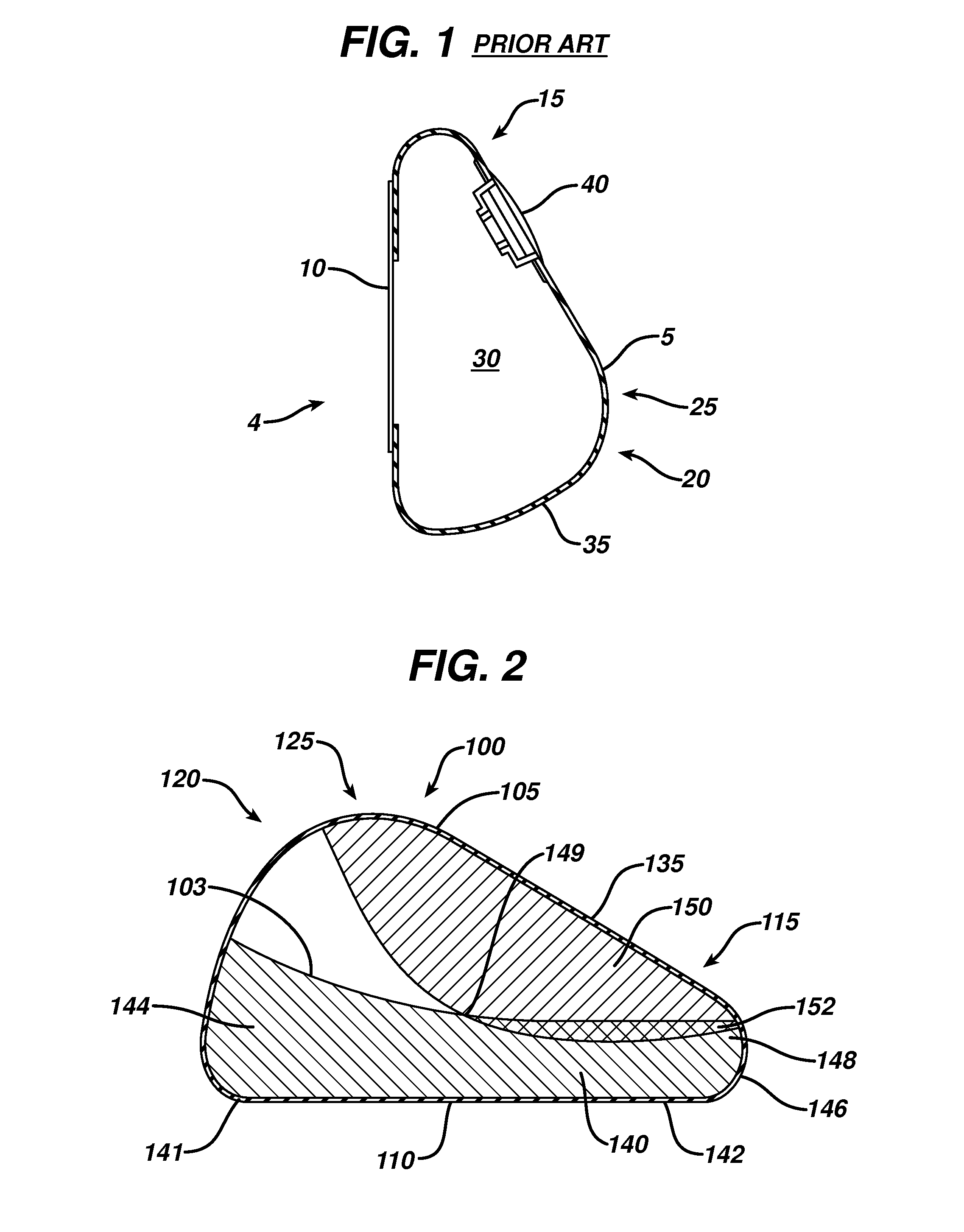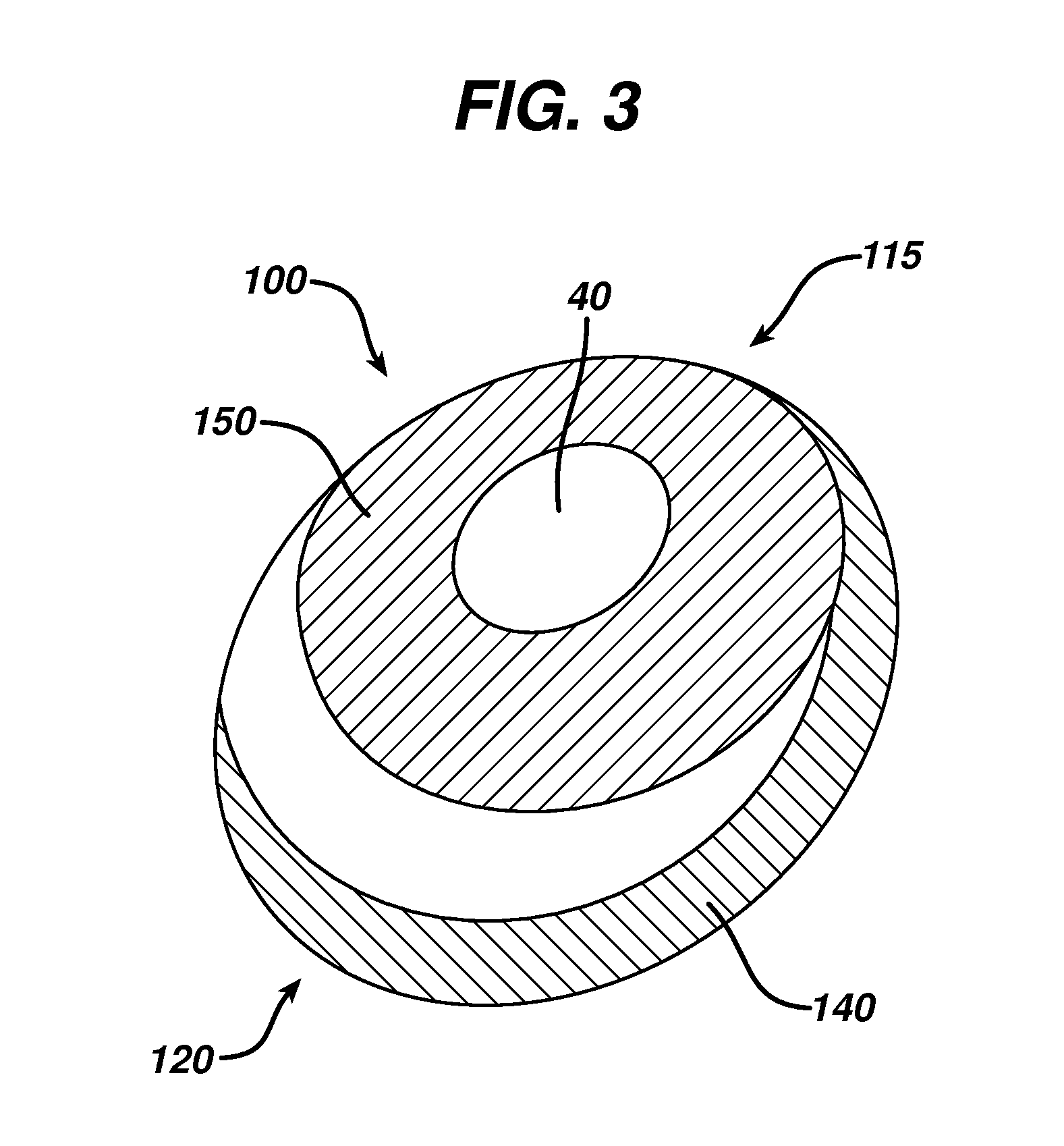Directional tissue expander
a tissue expander and expansion tube technology, applied in the field of expansion implants, can solve the problems of reducing the safety margin of the device, causing the expansion of the expander to expand in undesired directions, and overinflating the expander to be undesirabl
- Summary
- Abstract
- Description
- Claims
- Application Information
AI Technical Summary
Benefits of technology
Problems solved by technology
Method used
Image
Examples
Embodiment Construction
[0031]FIG. 1 shows a cross-sectional side view of an exemplary prior art mammary tissue expander 4. The expander has a posterior face 10 that lies substantially flat and is placed against a patient's chest wall, and an anterior face 5 that faces outward from the chest wall when implanted. The anterior face 5 includes an upper pole region 15 (i.e., the upper portion of the shell when the implant recipient is standing), a lower pole region 20 (i.e., the lower portion of the shell when the implant recipient is standing), and an apex 25 (corresponding to the point at which the nipple would be in a natural breast) separating the upper pole region and the lower pole region. The outer shell 35 of the expander 5 is typically made of a silicone material and includes an injection port or other valve or self-sealing zone 40 through which saline or another fluid is injected over time into the contained inner region 30. In this manner, the volume of the expander can be increased over time until ...
PUM
 Login to View More
Login to View More Abstract
Description
Claims
Application Information
 Login to View More
Login to View More - R&D
- Intellectual Property
- Life Sciences
- Materials
- Tech Scout
- Unparalleled Data Quality
- Higher Quality Content
- 60% Fewer Hallucinations
Browse by: Latest US Patents, China's latest patents, Technical Efficacy Thesaurus, Application Domain, Technology Topic, Popular Technical Reports.
© 2025 PatSnap. All rights reserved.Legal|Privacy policy|Modern Slavery Act Transparency Statement|Sitemap|About US| Contact US: help@patsnap.com



